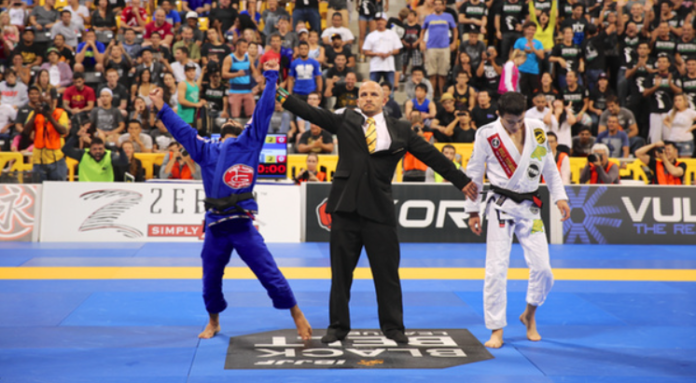
Do you want to test your skills, challenge yourself, and have fun on the mats, now that you’ve started BJJ? If so, competing in BJJ might be just what you need.
BJJ is fun and engaging, leads to self-improvement, and might even teach you some self-defense. but it is not only about training in the gym. It’s also about competing in tournaments against other practitioners who share your passion and dedication. Competing in BJJ can be one of the most rewarding and exciting experiences of your life. But it can also be intimidating, stressful, and overwhelming if you don’t know what to expect and how to prepare.
That’s why we created this ultimate guide for competing in BJJ. In this guide, you’ll learn everything you need to know about competing in both gi and No-Gi, from choosing your tournaments, training for them, performing at them, and learning from them.
Whether you’re a beginner or an advanced grappler, this guide will help you become a better competitor and enjoy the thrill of competing in BJJ, or even other grappling martial arts.
Ready? Let’s get started!
How To Train Specifically For A BJJ Tournament
The first step to competing in BJJ is to train specifically for it. Training for a competition is different from training for fun or learning new techniques. It requires more focus, intensity, structure, and discipline.
Here are some tips on how to prepare for BJJ competitions:
- Set a clear goal. Before you start training for a competition, you need to have a clear goal and a realistic plan. What is your motivation for competing? What are your strengths and weaknesses? What are your expectations and objectives? How much time do you have to prepare? How will you measure your progress?Having a clear goal will help you stay motivated, focused, and accountable throughout your training.
- Train efficiently. Training for a competition doesn’t mean training more or harder. It means training smarter. You need to train effectively and efficiently, meaning that you need to optimize your training frequency, intensity, duration, and content.A key thing is to balance your training volume with your recovery time. You need to prioritize quality over quantity. and every training session has to serve a purpose.
- Avoid common pitfalls. Training for a competition can also expose you to some common mistakes that can hinder your performance or even cause injuries.Some of these mistakes are: overtraining, undertraining, neglecting nutrition and hydration, cutting weight too fast or too much, changing your game plan at the last minute, etc. Listen to your body, follow your plan, eat well, drink enough water, cut weight gradually and safely, stick to your game plan, and you’ll have no trouble staying on track.
How To Prepare For Competition Day
Once you’ve trained specifically for a BJJ competition, you need to prepare for it. Preparing for a BJJ competition involves taking care of the logistical, mental, and physical aspects of competing.
Here’s a checklist for the ultimate way to prepare for a tournament day:
- Register for the tournament. The first thing you need to do is register for the tournament that suits your level and goals. You need to choose the right tournament based on factors such as location, date, ruleset, format, organization, cost, etc.Even more importantly, you have to know the right division based on factors such as: weight division, belt rank, age group, gender category, etc. Register early enough to secure your spot and avoid late fees or sold-out divisions.
- Pack a bag. The next thing you need to do is pack your bag with everything you need for the tournament day.Key essentials are your Gi or No-Gi gear (plus an extra one), your belt, your ID card or passport, your registration confirmation, a water bottle, snacks, a towel, and the like. You also need to pack optional items such as: headphones, a camera, etc.
- Relax and rest. The last thing you need to do before the tournament day is to relax and rest. Taper down your training intensity and volume as in the two weeks prior to the tournament. Proper nutrition and hydration are key, especially if you’re cutting weight. You also need to sleep well and avoid stress.
- Visualize and affirm. In order to mentally prepare yourself for the tournament day you should visualize yourself performing well and winning your matches. Affirming yourself with positive and empowering statements goes a long way to giving you peace of mind when you step on the mats.
What To Expect From Your First Competition Experience
The tournament day has arrived and you’re ready to compete. But what can you expect at a BJJ competition? How can you deal with the nerves, stress, and pressure that come with competing?
Follow these proven tips for a hassle-free tournament day experience:
- Arrive early and weight-in. The first thing you need to do when you arrive at the venue is weigh-in so that you can check in for your weight class. You’ll then need to confirm your registration, get your bracket, and find out your mat number and schedule.It is a great idea to familiarize yourself with the venue, the facilities, the rules, and the staff, so walk around, talk to people and find your bearings. Do not arrive immediately before your match, it will greatly hinder your performance.
- Warm-up and stretch. The next thing you need to do is warm-up and stretch. Try to activate your muscles, joints, and cardiovascular system so that you prevent injuries and cramps. Do shorter versions of the warm-up every 30 minutes, if you’re waiting more than originally intended for your first match.
- Observe. Another thing you can do while waiting for your matches is watch and learn. You can watch other competitors in your division or other divisions. Watching your potential opponents can reveal their strengths and weaknesses.There is also your team and teammates to watch, support, and coach.
- Breathe and focus. One of the most important things you need to do before each match is breathe and focus. You need to calm your nerves and clear your mind. All you really need is a clear focus on your game plan and your goals. Breathing deeply and slowly for a few minutes before each match will help calm and center you.
- Have fun. The last thing you need to do is fight and have fun. Give your best effort but do not take things too seriously. After all, you paid to participate, and not the other way around. Make sure you follow the rules and respect your opponent and the referee.
How To Learn From A Jiu-Jitsu Competition Experience
After the tournament is over, you might feel a mix of emotions: happiness, sadness, pride, disappointment, relief, etc. But regardless of the outcome of your matches, there is always a lesson to learn from a BJJ competition:
- Analyze your performance. The first thing you need to do after a competition is to analyze your performance. Review your matches (if possible) or recall them from memory and focus on identifying what you did well and what you did poorly.Also, listen to the feedback from your coach, teammates, opponents, and referees. Hearing about their perspectives and insights will help you broaden your mind.
- Celebrate your achievements and overcome your failures. The next thing you need to do after a competition is to celebrate, regardless of the outcome. You’ll learn a lesson whether you win or lose so acknowledge and appreciate your efforts and results, but do not dwell on them too long. Re yourself (most often with a huge meal and some beer) and share your joy with others.
- Set new goals. The last thing you need to do after a BJj tournament is set new goals and plan new actions. Use your tournament day as a learning experience and the feedback of others as a guide for your improvement. Allow a few days/ weeks to let the impressions settle in and then it is back to the porrada.
When And Where Should You Start Competing In BJJ?
Two very common questions that BJJ practitioners have are:
- When to start competing in BJJ, and,
- How to choose the best BJJ tournaments?
There is no definitive answer to these questions, as it depends on many different factors such as: personal preference, skill level, availability, budget, etc. However, here are some general guidelines that can help you decide when to start competing in BJJ and how to choose your tournaments:
When Should You Start Competing In BJJ?
The best time to start competing in BJJ is when you feel ready and willing to do so. There is no minimum or maximum requirement for competing in Jiu-Jitsu. You can compete as a white belt or as a black belt, you can compete as soon as you start training or after years of practice. Your grappling experience does not matter too much. The only thing that matters is that you have a genuine interest and desire to compete in BJJ.
That said, try to compete sooner than later. It will help you pick a direction in your BJJ game early on.
How To Choose Your Tournaments?
The best way to choose your tournaments is based on your goals and preferences. You need to consider factors such as location, date, ruleset, format, organization, cost, etc. Tournaments that are convenient, suitable, reputable, affordable, etc. for you make the most sense. You’ll be very stressed at your first competition regardless of when you start competing in your BJJ journey, so make sure you get it out of the way by performing locally for your first BJJ tournament.
Another thing to consider is choosing tournaments that match your level and goals. For example, if you want to test yourself against the best competitors in the world, you might want to choose tournaments like IBJJF Worlds or ADCC. If, on the other hand, you want to have fun and gain experience, you might want to choose local or regional tournaments.
How to Choose Between Gi and No-Gi BJJ Competition
Another question that most BJJ practitioners have is how to choose between Gi and No-Gi BJJ competitions. Gi and No-Gi are two different styles of BJJ that have different rules, techniques, strategies, and cultures.
Gi BJJ is when both players wear cotton kimonos (Gis) that they can grip to help control or submit to each other. No-Gi BJJ is when both players wear rashguards and shorts that they cannot grab during a match.
There is no right or wrong answer to this question, as it depends on your personal preference and goals. However, there are some pros and cons of competing in Gi and No-Gi BJJ that might help you decide:
Pros And Cons Of Competing In Gi BJJ
On the pros side of competing in gi BJJ, it’s more traditional and authentic, more technical and strategic. Competing in a Gi leaves you a lot of time to think about your next move as movent is restricted as a result of grips on the kimonos. It is also more accessible and available, although we’re seeing a shift in that as of late.
Some of the cons of competing in gi BJJ are that it can feel restrictive and frustrating since people can hold you as well by controlling the Gi. Competing like this is also much more complex and confusing, and highly dependent on grips and strength. A very important aspect of training/competing in the Gi is that it is also expensive and cumbersome.
Pros And Cons Of Competing In No-Gi BJJ
Some of the pros of competing in No-Gi BJJ include the fact that it is more modern and relevant, way more dynamic and fast-paced compared to its Gi counterpart, and a lot simpler and more direct. People tend to say that No-Gi is more comfortable, convenient, and fun.
The negative aspects of competing in No-Gi are that it is less traditional, usually requires a lot more adaptation and reactive timing as opposed to using strategy and guile. Some also argue that No-Gi is less diverse and creative.
Ultimately, the best way to choose between Gi and No-Gi BJJ competitions is to try both styles and see which one suits you better. You might find that you enjoy both styles equally or that you prefer one over the other.
The bottom line is that both ways of competing in BJJ have their advantages and disadvantages, their challenges and rewards. The only way to know for sure is to experience them for yourself, but expect that your attitude towards one or both will change along with your current skill level.
How To Develop A Competitive Brazilian Jiu-Jitsu Gym Culture
Another aspect that can influence your success in competing in BJJ is the culture and mindset of your gym. Having a competitive Jiu-Jitsu gym culture and mindset can help you prepare better, perform better, and learn better.
Developing such a culture requires you to have a supportive and motivated team and coach to begin with. One of the most important factors for developing a competitive BJJ gym is to bring together people who share the passion and dedication for competing.
You need training partners who will encourage you, challenge you, inspire you, and help you throughout your journey. The coach also plays a pivotal role as someone to guide, teach, correct, and push you beyond your limits.
Fostering a competitive mindset among teammates and students is based largely on creating a positive and productive environment where everyone can learn, grow, and excel. As long as people push themselves, but are respectful through that endeavor, a solid competition team is bound to emerge. Specific training sessions geared towards creating competitors help immensely and there are many different fun ways to set it up.
The final factor is adopting habits and attitudes that can help you become a successful competitor in BJJ. You need to develop habits such as training regularly, eating healthily, sleeping well, recovering properly, etc.
Conclusion
Competing in BJJ is a great way to test your skills, challenge yourself, and have fun on the mats. But it’s not only about training in the gym. It’s also about competing in tournaments against other practitioners who share your passion and dedication.
In this guide, you learned everything you need to know about competing in both Gi and No-Gi BJJ, from choosing your tournaments, training for them, performing at them, and learning from them. Whether you’re a beginner or an advanced grappler, this guide will help you become a better competitor and enjoy the thrill of competing in BJJ.


![Darce Choke Encyclopedia – Origins, Mechanics and Variations [2025] BJJ, choke, Brabo, BJJ Darce Choke, D'arce Choke, Darce BJJ Choke](https://bjj-world.com/wp-content/uploads/2017/11/JungPoirierLeeYahoo-218x150.jpg)






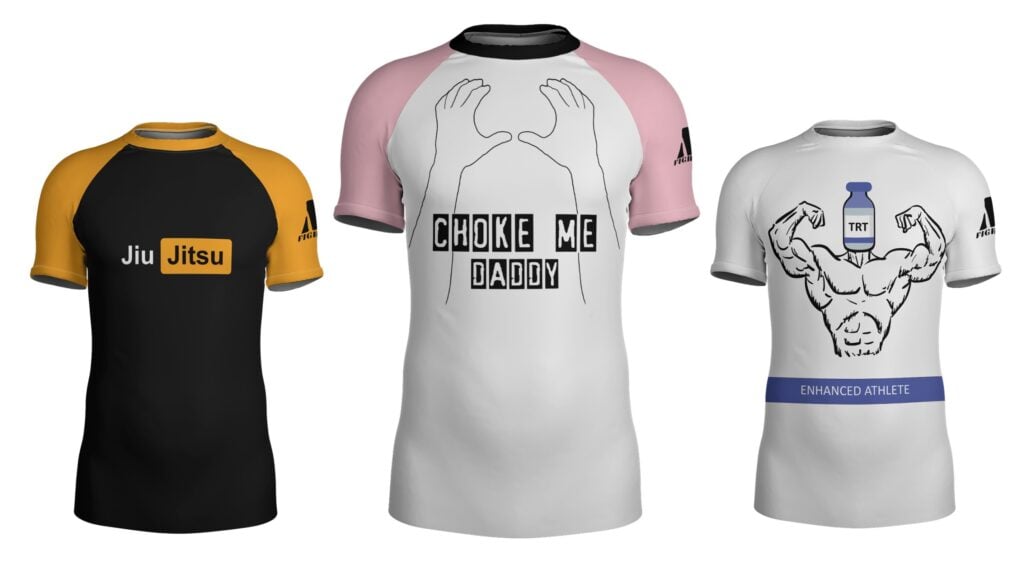
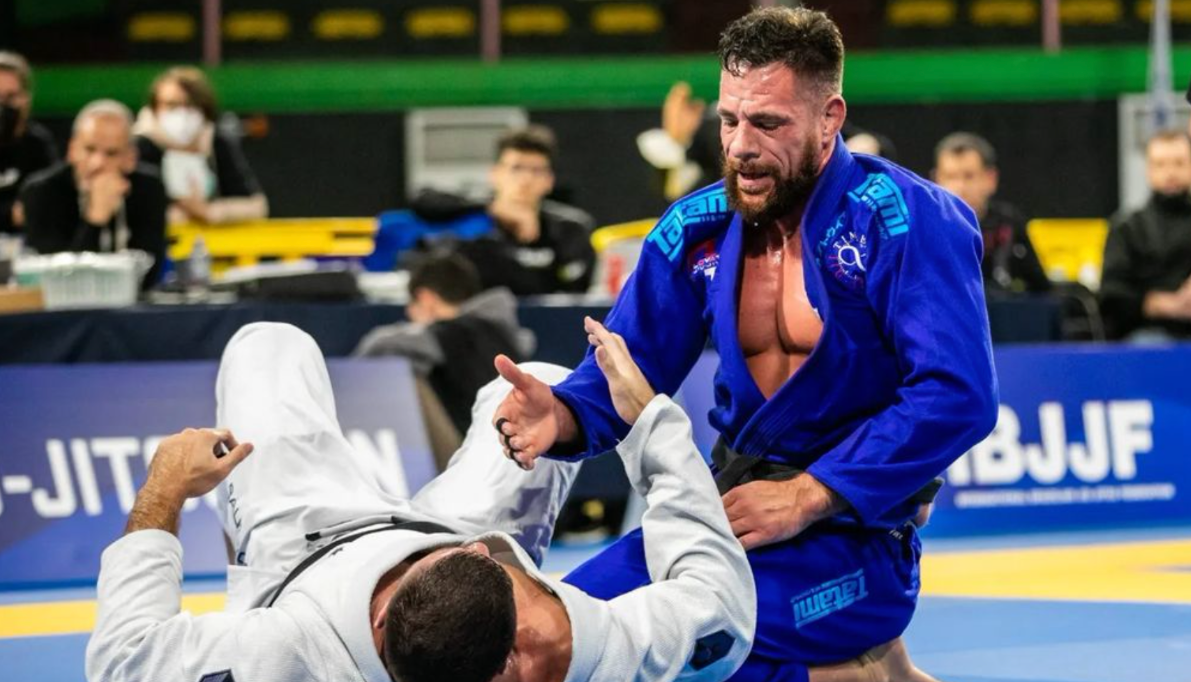
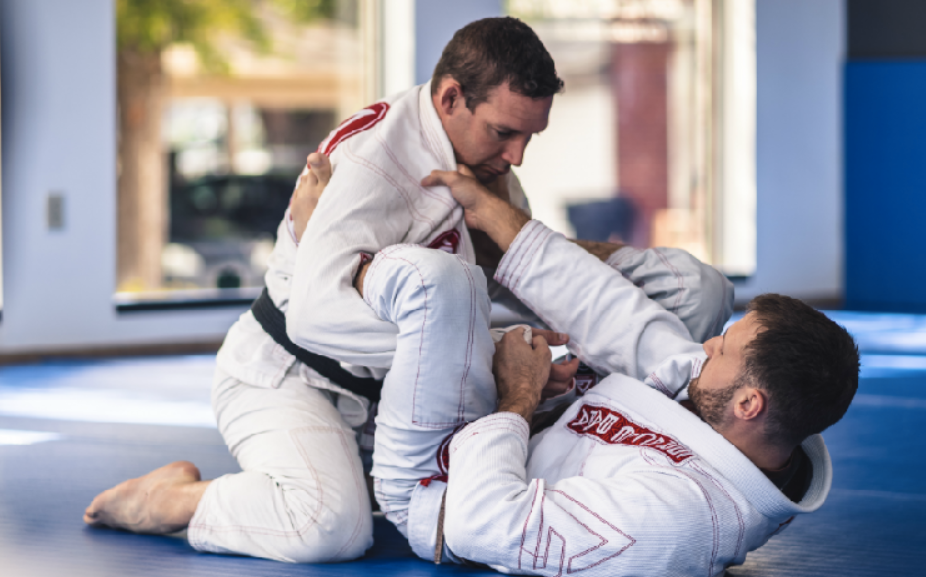
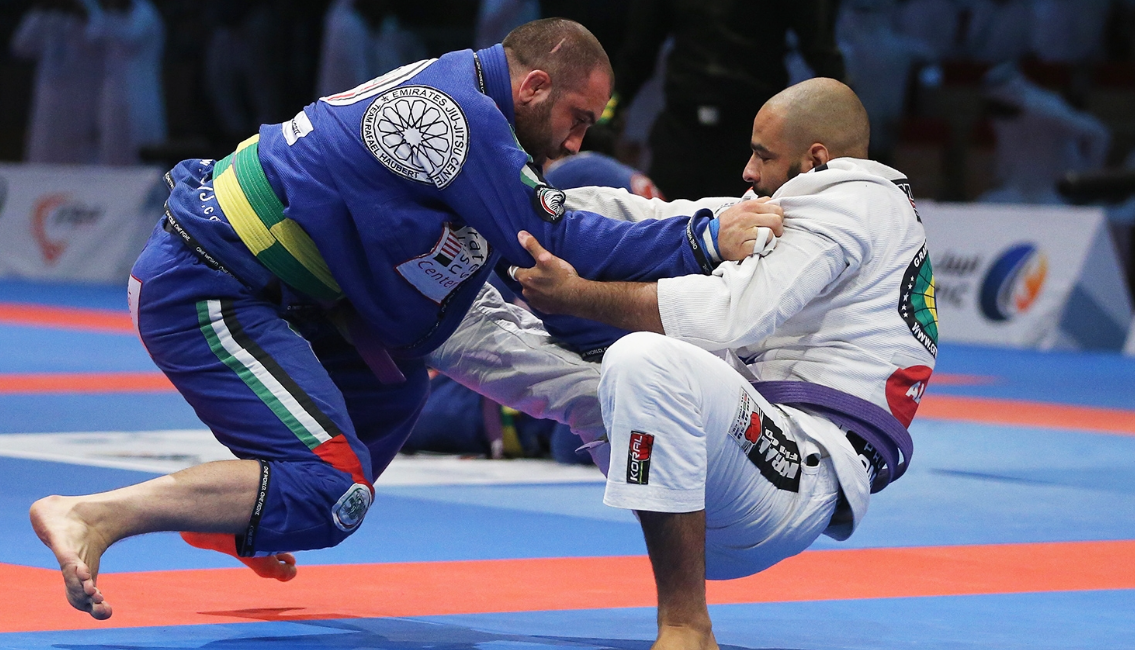
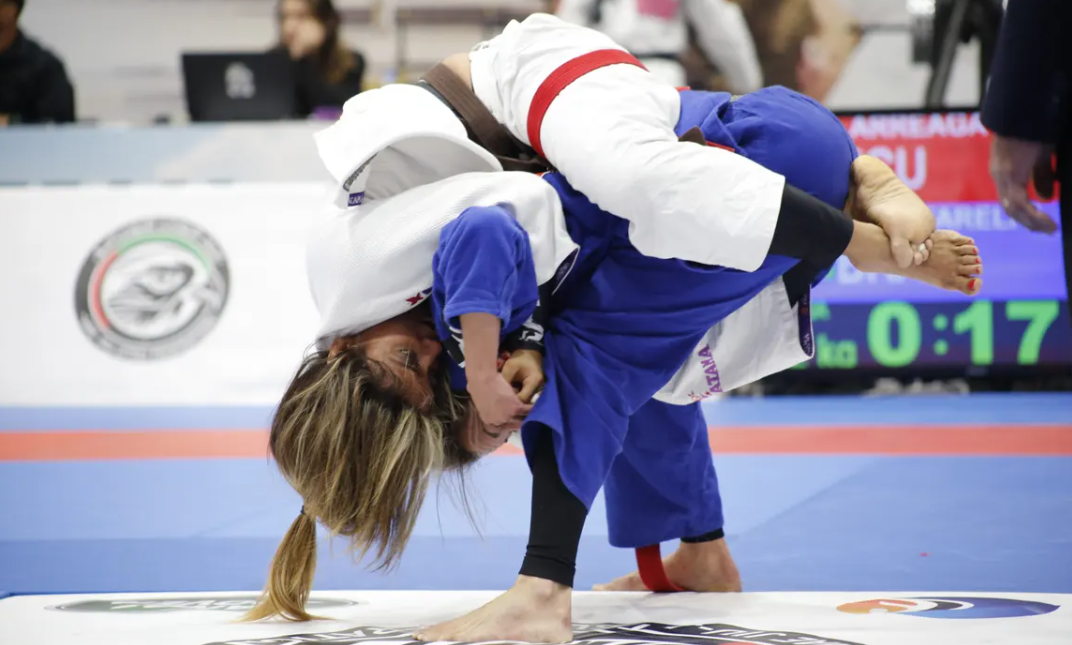
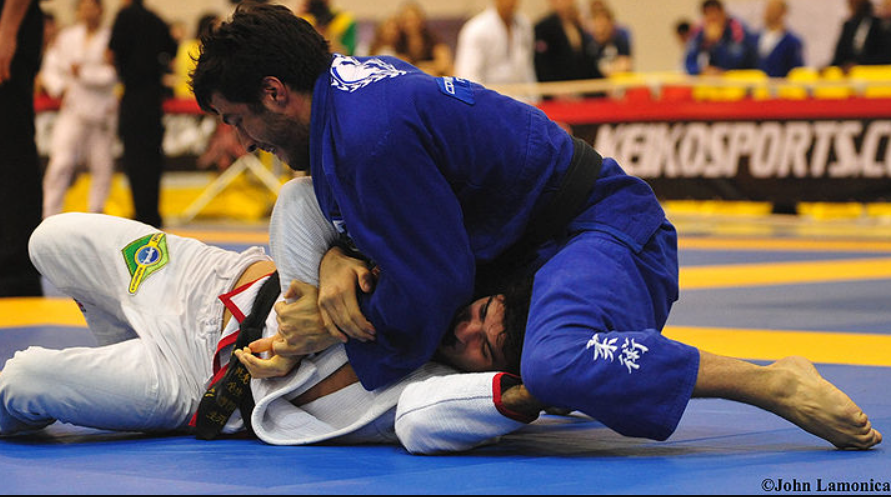
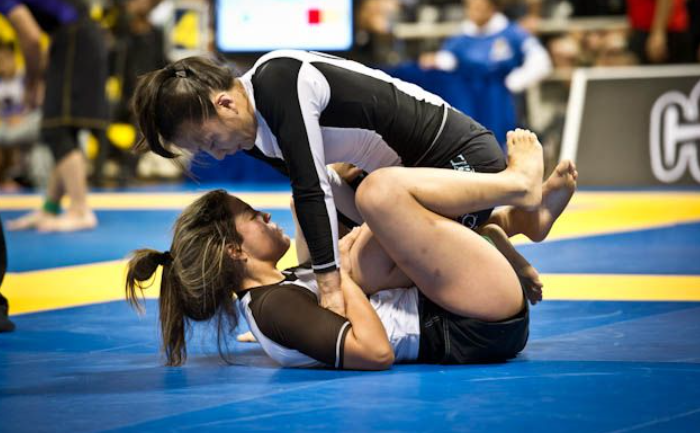
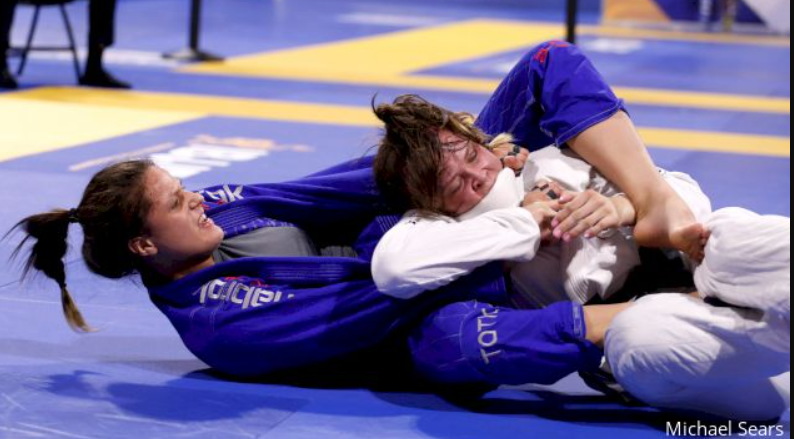


![Countering with Crab Ride Anthony Budion DVD Review [2025] Countering with Crab Ride Anthony Budion DVD Review](https://bjj-world.com/wp-content/uploads/2025/03/countering-with-crab-ride-anthony-budion-dvd-review-218x150.png)
![Closet Closed Guard Craig Jones DVD Review [2025] Closet Closed Guard Craig Jones DVD Review](https://bjj-world.com/wp-content/uploads/2025/03/closet-closed-guard-craig-jones-dvd-review-218x150.png)
![Xanadu Back Takes Levi Jones-Leary DVD Review [2025] Xanadu Back Takes Levi Jones-Leary DVD Review](https://bjj-world.com/wp-content/uploads/2025/03/xanadu-back-takes-levi-jones-leary-dvd-review-218x150.png)

![No-Gi Grapplers Guide To Front Headlock Joel Bane DVD Review [2025] No-Gi Grapplers Guide To Front Headlock Joel Bane DVD Review](https://bjj-world.com/wp-content/uploads/2025/03/no-gi-front-headlock-joel-bane-dvd-review-218x150.png)



![Advanced Immortal Clinch Matt Brown DVD Review [2024] Advanced Immortal Clinch Matt Brown DVD Review](https://bjj-world.com/wp-content/uploads/2024/09/advanced-immortal-clinch-matt-brown-dvd-review-100x70.png)
![The Empty Half Guard Michael Currier DVD Review [2025] The Empty Half Guard Michael Currier DVD Review](https://bjj-world.com/wp-content/uploads/2025/03/empty-half-guard-michael-currier-dvd-review-100x70.png)








![No-Gi Defense Xande Ribeiro DVD Review [2024] No-Gi Defense Xande Ribeiro DVD Review](https://bjj-world.com/wp-content/uploads/2024/11/no-gi-defense-xande-ribeiro-dvd-review-100x70.png)
![Mastering The Crucifix Alexandre Pereira DVD Review [2025] Mastering The Crucifix Alexandre Pereira DVD Review](https://bjj-world.com/wp-content/uploads/2025/01/mastering-the-crucifix-alexandre-pereira-dvd-review-100x70.png)



![Complete Front Headlock System Michael Pixley DVD Review [2024] Complete Front Headlock System Michael Pixley DVD Review](https://bjj-world.com/wp-content/uploads/2024/10/front-headlock-system-michael-pixley-dvd-review-100x70.png)
![I Got Your Back Jake Straus DVD Review [2025] I Got Your Back Jake Straus DVD Review](https://bjj-world.com/wp-content/uploads/2025/03/i-got-your-back-jake-straus-dvd-review-100x70.png)

![Highlight Hip Throws Christian Ozbek DVD Review [2025] Highlight Hip Throws Christian Ozbek DVD Review](https://bjj-world.com/wp-content/uploads/2025/01/highlight-hip-throws-christian-ozbek-dvd-review-100x70.png)


![10th Planet Leg Locks Jeremiah Vance DVD Review [2025] 10th Planet Leg Locks Jeremiah Vance DVD Review](https://bjj-world.com/wp-content/uploads/2025/01/10th-planet-leg-locks-jeremiah-vance-dvd-review-100x70.png)
![Forging The De La Riva Guard Giancarlo Bodoni DVD Review [2025]](https://bjj-world.com/wp-content/uploads/2025/02/de-la-riva-guard-giancarlo-bodoni-dvd-review-100x70.png)
![The Buchecha Gi Takedown System DVD Review [2025] The Buchecha Gi Takedown System DVD Review](https://bjj-world.com/wp-content/uploads/2025/01/buchecha-gi-takedown-system-dvd-review-100x70.png)

![Complete Fundamentals Curriculum Eliot Marshall DVD Review [2025] Complete Fundamentals Curriculum Eliot Marshall DVD Review](https://bjj-world.com/wp-content/uploads/2025/02/fundamentals-curriculum-eliot-marshall-dvd-review-100x70.png)